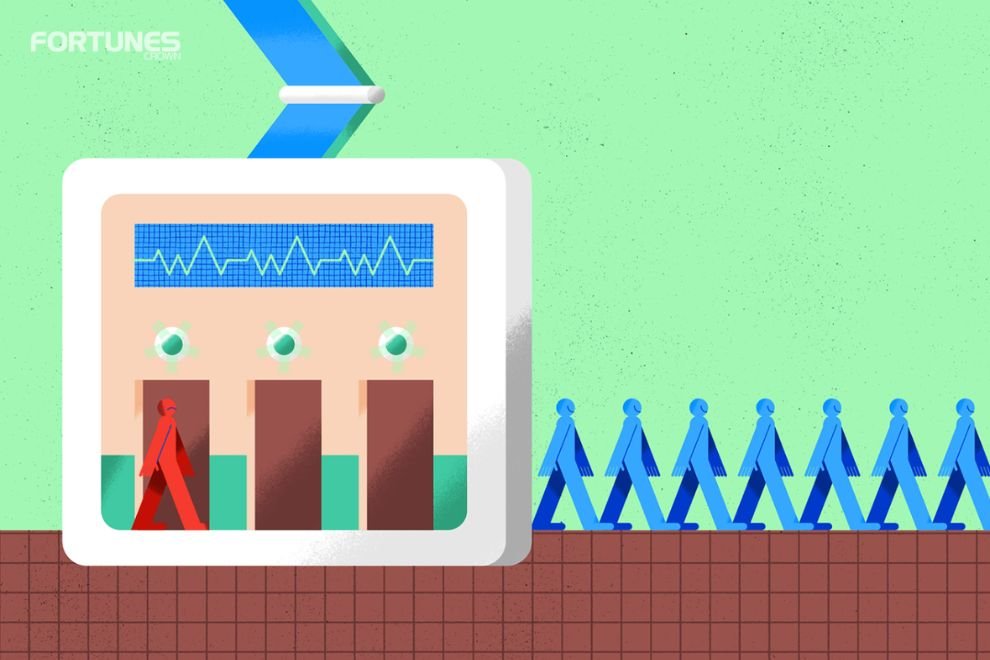In this enlightening blog, explore the full scope of the Health Tech Revolution and learn about the revolutionary effects of cutting-edge technologies on healthcare. Readers will discover how technology, through personalized medicine, AI diagnostics, telemedicine, and robotics integration, reshapes patient care. It makes healthcare more accessible and revolutionizes the entire system.
Technological developments are driving a profound Health Tech Revolution in the healthcare industry. Technology is completely reshaping our approach to medical care, revolutionizing treatment plans and diagnosis methods. Its integration into healthcare systems transforms how we perceive and engage with medical services. This revolution in health technology is a historic time when cutting-edge technologies are changing the landscape, boosting accessibility, and increasing patient outcomes. Let’s examine the various ways that health technology is changing the healthcare industry and dive into the revolutionary power of this industry.
Digital Health Transformation
1. Telemedicine and Remote Patient Monitoring
These days, telemedicine is a game-changer, particularly during emergencies like the COVID-19 epidemic. Patients can obtain healthcare remotely through secure messaging, phone conversations, or video conferences, which facilitates prompt consultations with healthcare providers.The Health Tech Revolution empowers healthcare providers to remotely monitor vital signs and health metrics using wearable technology and sensors. This allows for the early identification of any health problems in addition to improving patient convenience.
2. Artificial Intelligence (AI) and Machine Learning
Treatment strategies, medication discoveries, and diagnostics are all being changed by AI and machine learning algorithms. Large data sets are analyzed by these technologies in order to spot trends and forecast results, which results in more precise diagnoses and customized treatment plans. Digital Health Transformation is evident as artificial intelligence (AI)-driven systems can precisely analyze medical pictures, including CT and MRI scans, helping radiologists identify anomalies and increase diagnostic precision.
3. Electronic Health Records (EHRs) and Interoperability
Digital Health Transformation has significantly impacted treatment strategies, medication discoveries, and diagnostics through the application of AI and machine learning algorithms. Large data sets are analyzed by these technologies to spot trends and forecast results, enabling more precise diagnoses and customized treatment plans. Artificial intelligence (AI)-driven systems can precisely analyze medical pictures, including CT and MRI scans, thereby assisting radiologists in identifying anomalies and enhancing diagnostic precision.
4. Robotics and Minimally Invasive Surgery
Robot-assisted operations have transformed the surgical profession by providing doctors more control, accuracy, and flexibility. Digital Health Transformation facilitates less invasive surgery, aided by robotic devices and skilled surgeons. This approach shortens recovery periods, decreases complications, and minimizes hospital stays. They have proven crucial in intricate surgical procedures, providing enhanced accuracy and better results.
5. Personalized Medicine and Genomics
The development of customized medicine has been made possible by advancements in genomics and molecular research. Healthcare professionals can harness Technology in Healthcare to customize drugs and therapies for each patient based on their distinct genetic profile. This strategy utilizes an individual’s genetic makeup to optimize treatment benefits and minimize side effects. It aims for more targeted and efficient medical treatments.
6. Health Apps and Wearable Technology
The widespread availability of wearable technology and health applications empowers individuals to take control of their health. These devices, part of Technology in Healthcare, track physical activity, monitor vital indicators, provide individualized health insights, and promote healthy habits. They enable people to actively manage their well-being and serve as valuable tools for preventative care.
7. Virtual Reality (VR) and Augmented Reality (AR) in healthcare
Applications of VR and AR Technology in Healthcare include medical teaching, pain treatment, and simulations. Immersion-based virtual reality therapies, a part of Technology in Healthcare, provide patients with a way to block out discomfort during operations or support them during in-person therapy sessions. AR also helps surgeons by giving them real-time imagery and direction during difficult surgery.
Tech Impact on Healthcare
The introduction of technology into the healthcare sector has sparked a profound transformation that has completely changed the landscape of the sector and patient care paradigms. Tech Impact on Healthcare has had a revolutionary effect on many aspects of healthcare, transforming conventional methods and improving overall results.
1. Better Access and Telemedicine:
Patients may now get healthcare remotely thanks to technology, especially telemedicine, which can cross geographic boundaries. Tech Impact on Healthcare has enabled people to obtain prompt care through remote monitoring and virtual consultations, regardless of location. This improved accessibility has been essential for maintaining continuity of service and reducing interruptions, particularly during public health emergencies.
2. Data-Driven Decision Making:
Advanced analytics and the widespread use of Electronic Health Records (EHRs) have given medical personnel access to extensive patient data. Tech Impact on Healthcare is evident in how this abundance of data facilitates predictive analytics, tailored therapies, and well-informed decision-making. AI systems can quickly evaluate data by utilizing huge datasets, which helps with early diagnosis and customized treatment regimens.
3. Enhanced Patient Engagement:
Individuals now have immediate access to health management solutions thanks to Healthcare Tech Trends like wearable technology and health applications. By tracking fitness objectives, monitoring vital indicators, and offering tailored insights, these apps promote proactive health management. More patient involvement in their health results in improved treatment plan adherence and healthier lifestyle selections.
4. Precision Medicine and Personalized Treatments:
Advancements in genomics and molecular research enable personalized medicine. Healthcare professionals tailor treatment plans to an individual’s biology by analyzing their genetic makeup. This focused strategy aligns with Healthcare Tech Trends, ushering in a new era of customized healthcare. It maximizes therapeutic efficacy while minimizing side effects.
5. Revolutionizing Medical Procedures:
Surgery technology developments and robotics have had a big influence on medical operations. Healthcare Tech Trends in robotic surgery provide unmatched accuracy, minimize invasiveness, and speed up the healing process. Furthermore, these technologies give surgeons the ability to perform complex surgeries with greater accuracy, which significantly improves patient outcomes.
Technology’s entry into the healthcare industry has ushered in a time of previously unimaginable opportunities. The integration of Technology in Healthcare is growing, from improving patient involvement through user-friendly applications to utilizing data insights for predictive healthcare models. This indicates that healthcare will become more customized, accessible, and efficient in the future.
Healthcare Tech Trends
Given how quickly Technology in the Healthcare sector is developing, staying up to date on the most recent developments is essential. Several new developments have the potential to completely change patient care and the way medical professionals provide their services in the future.
1. AI and Machine Learning Advancements:
The significance of AI and machine learning keeps growing in the healthcare industry. These tools are being utilized more and more to aid in drug discovery, forecast disease outbreaks, optimize treatment regimens, and analyze complicated medical data. Digital Health Transformation is evident in algorithms’ capacity to support healthcare practitioners’ decision-making, which will only become better as they develop in sophistication.
2. Remote Patient Monitoring and Telehealth Innovations:
Advances in telehealth combined with remote patient monitoring have the potential to completely transform patient care. Digital Health Transformation allows continuous health monitoring beyond traditional healthcare setups. Wearable technology and IoT-enabled sensors facilitate this shift. These developments improve the way chronic illnesses are managed, encourage preventative treatment, and reduce needless hospital stays.
3. Blockchain for Healthcare Data Security:
Because blockchain technology can guarantee data confidentiality, interoperability, and integrity, it is becoming more and more popular in the healthcare industry. The Health Tech Revolution has seen blockchain ease secure data exchange, simplify medical records, and protect sensitive patient data by providing a decentralized, tamper-proof system.
4. Augmented Reality (AR) and Virtual Reality (VR) Integration:
Applications for AR and VR are being increasingly used in patient care, medical training, and simulations. These immersive technologies, part of Technology in Healthcare, support treatments, patient education, and surgical planning. They provide a special means of visualizing intricate medical data and improve comprehension of medical treatments.
The introduction of state-of-the-art technology into healthcare ushers in a paradigm-shifting period that is defining patient care through the Health Tech Revolution and its Tech Impact on Healthcare. Healthcare has changed, becoming more individualized, efficient, and accessible. Examples of these changes include wearable technology, telemedicine, robots, genomics, and AI-driven diagnostics. This change has revolutionized conventional methods by improving patient outcomes via data-driven decision-making, precision medicine, and heightened involvement.
More profound shifts are anticipated as a result of developments in digital health, AI, remote monitoring, blockchain security, AR, and VR. Staying updated on Healthcare Tech Trends is crucial for patients and professionals. It offers unprecedented possibilities where technology significantly enhances healthcare and global well-being.








